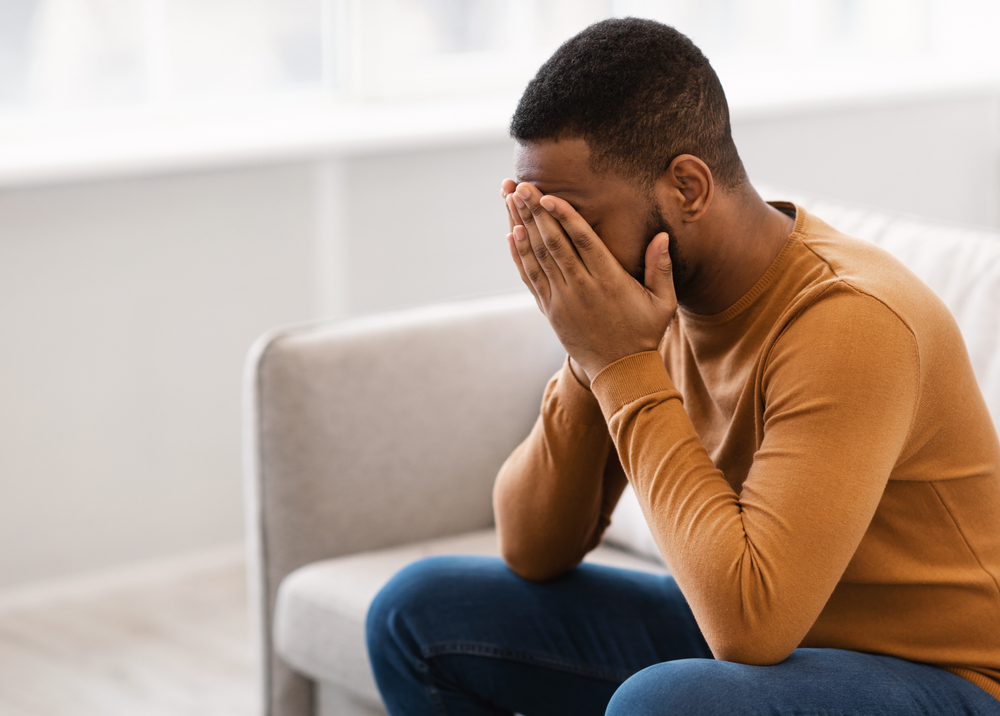Crying represents one of humanity’s most natural emotional responses, yet many men struggle with this basic form of expression. This challenge stems from deeply rooted societal pressures, cultural expectations, and personal fears that create invisible barriers to emotional release. Understanding these obstacles marks the first step toward fostering healthier emotional expression among men.
The weight of societal expectations
From their earliest years, boys encounter messages that shape their relationship with emotional expression. Common phrases like “man up” or “boys don’t cry” create lasting associations between tears and weakness. These seemingly harmless words carry significant weight, molding how men view emotional vulnerability throughout their lives.
The impact extends beyond childhood, affecting men’s personal and professional relationships. Many men report feeling pressure to maintain a stoic facade in the workplace, fearing that any display of emotion might undermine their authority or professional standing. This constant self-monitoring creates a cycle of emotional suppression that can lead to stress, anxiety, and deeper mental health challenges.
Judgment and peer pressure
The fear of judgment, particularly from other men, creates a powerful barrier to emotional expression. This anxiety often stems from past experiences where vulnerability led to ridicule or dismissal. Professional settings can amplify these concerns, as men worry that crying might mark them as unstable or unable to handle pressure.
These fears affect personal relationships as well. Men often struggle to show emotional vulnerability with partners, friends, or family members, creating emotional distance in their closest relationships. The concern about being seen as “less manly” can prevent them from seeking emotional support during challenging times, leading to isolation and unresolved emotional stress.
Cultural barriers and upbringing
Cultural influences play a significant role in shaping men’s attitudes toward crying. Many societies worldwide maintain strict expectations about male emotional expression, creating deeply ingrained beliefs about appropriate behavior. These cultural norms often pass from generation to generation, with young boys learning to emulate the emotional restraint they observe in male role models.
The impact of these cultural expectations varies across communities but often includes:
- Strong associations between emotional control and masculinity
- Family traditions that discourage male emotional expression
- Religious or cultural beliefs about male roles and behavior
- Social penalties for displaying vulnerability
Control and vulnerability
Many men associate crying with losing control, viewing tears as a sign of emotional weakness rather than a natural response to strong feelings. This perception often strengthens in professional environments where maintaining composure is highly valued. The pressure to appear composed and in control can lead men to develop rigid emotional barriers that become increasingly difficult to break down.
The struggle for control extends beyond public spaces into private moments. Even when alone, many men fight against the urge to cry, having internalized the belief that emotional restraint equals strength. This internal conflict can create significant psychological stress and prevent healthy emotional processing.
Emotional literacy gap
The lack of emotional education represents a significant barrier to male emotional expression. Many men grow up without learning the vocabulary or tools needed to process and express their feelings effectively. This educational gap leaves them ill-equipped to handle emotional challenges in healthy ways.
Without proper emotional guidance, men often develop maladaptive coping mechanisms:
- Suppressing emotions until they reach a breaking point
- Converting sadness or hurt into anger
- Avoiding situations that might trigger emotional responses
- Using substances to numb emotional pain
Breaking free from emotional constraints
Creating change requires addressing these barriers at both individual and societal levels. Men need safe spaces to explore and express their emotions without fear of judgment. This might include:
Professional support through therapy or counseling can help men develop emotional awareness and healthy expression tools. These settings provide private, judgment-free environments for exploring feelings and learning new coping strategies.
Support groups specifically designed for men can offer community and understanding. Sharing experiences with others who face similar challenges helps normalize emotional expression and provides practical strategies for overcoming barriers to crying.
Moving forward
Progress in male emotional expression requires continued effort to challenge traditional narratives about masculinity and strength. By understanding and addressing the reasons men fear crying, we can work toward a society that values emotional authenticity regardless of gender.
The path to change involves:
- Educating young boys about healthy emotional expression
- Creating supportive environments in schools and workplaces
- Challenging media portrayals of masculine stoicism
- Promoting positive examples of male emotional vulnerability
Remember, crying serves as a natural release valve for emotional pressure. By embracing this aspect of human experience, men can develop fuller, healthier emotional lives and stronger relationships with others.
This story was created using AI technology.















